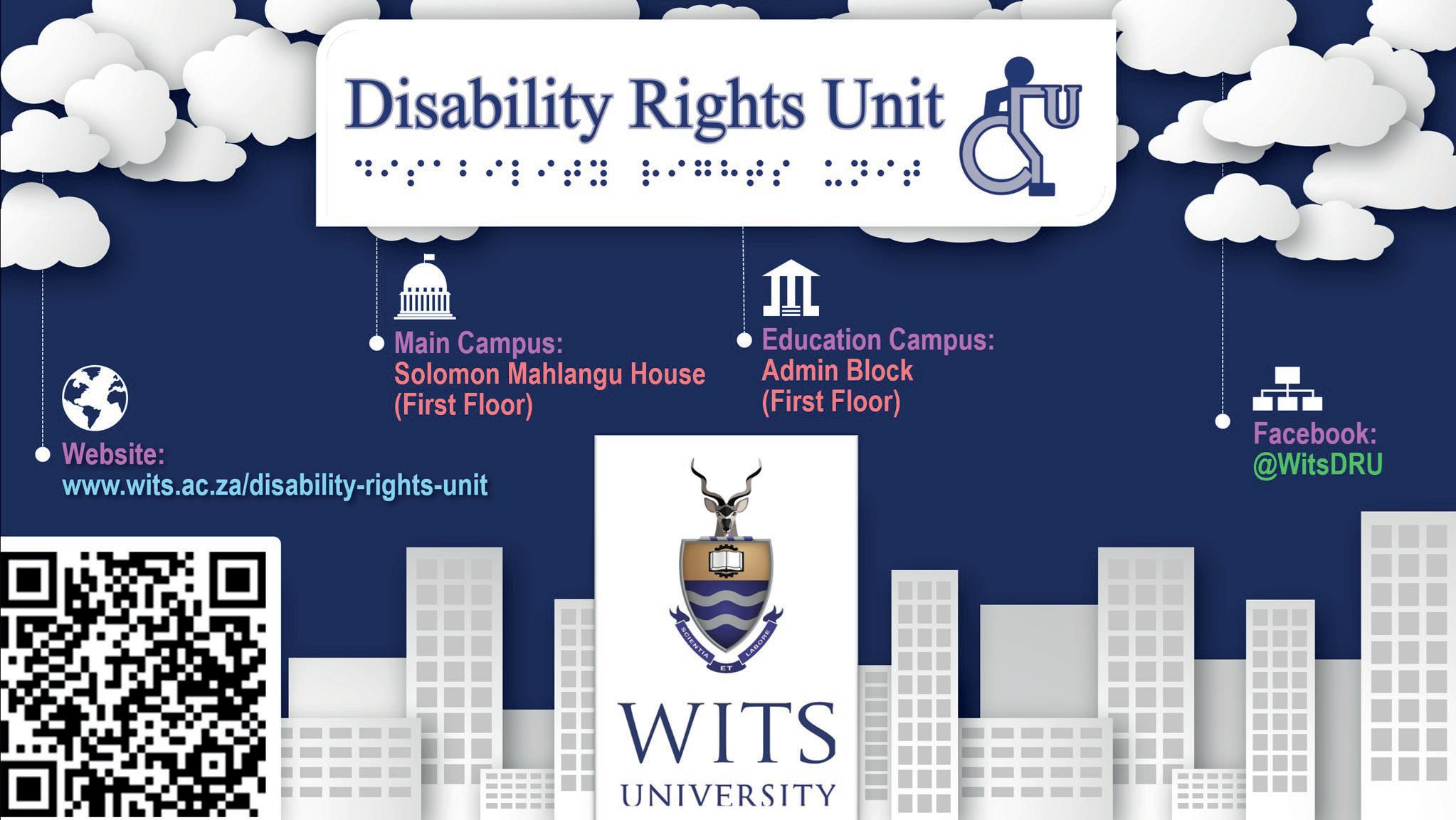










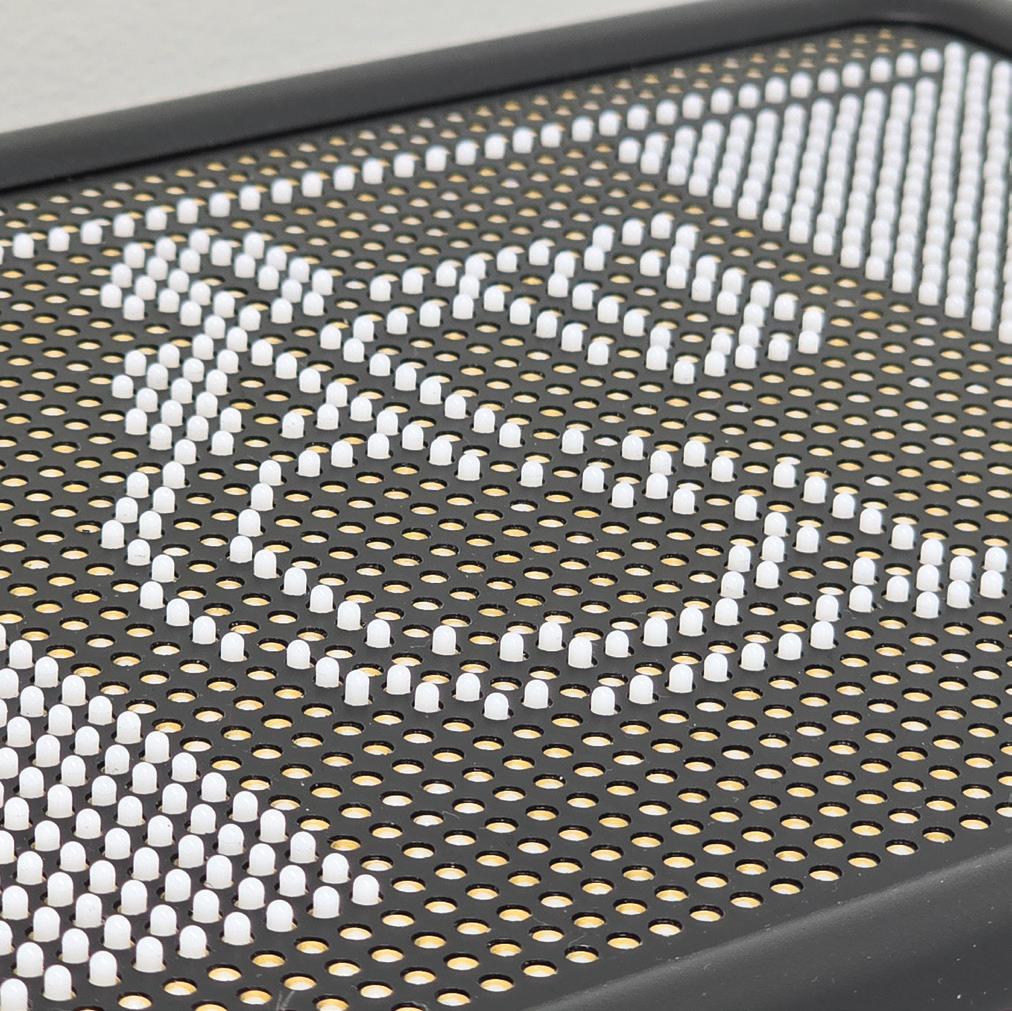





















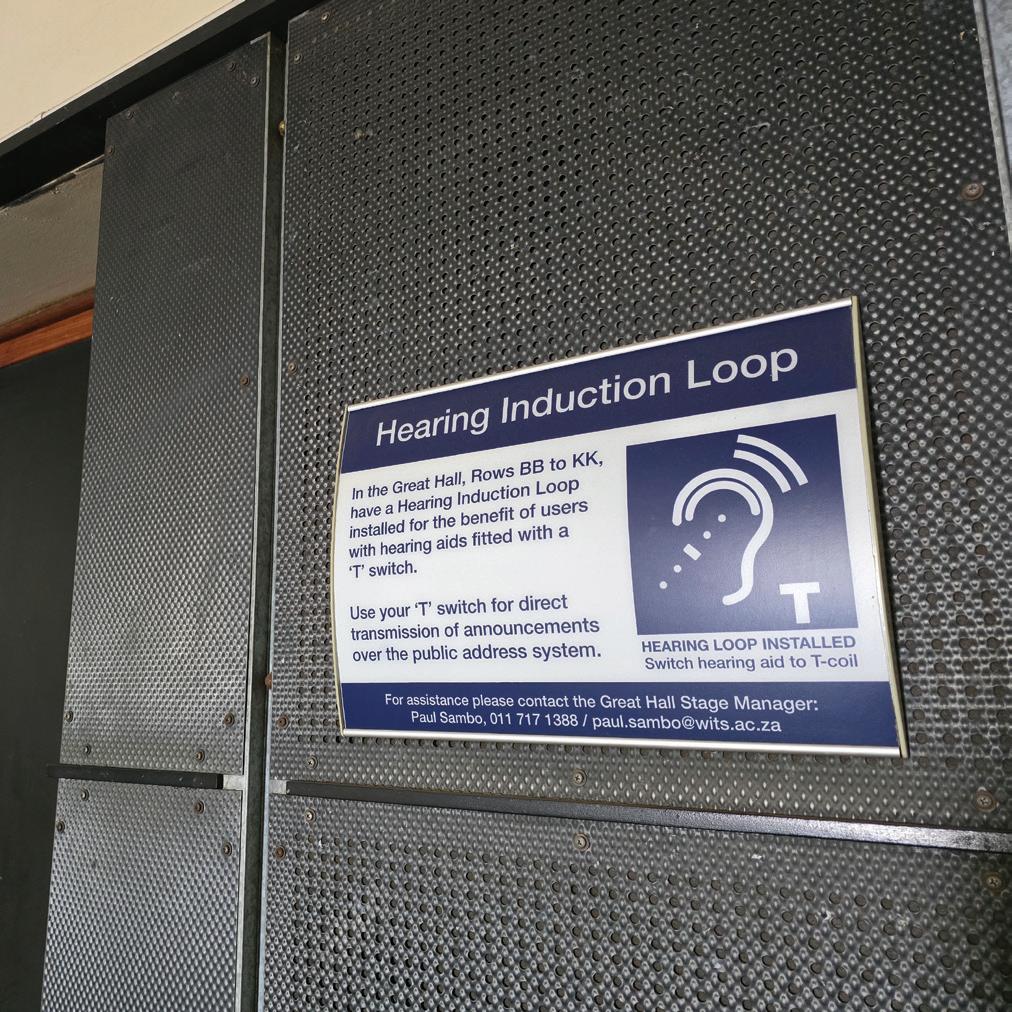













































As the new Head of the Disability Rights Unit (DRU) at the University of the Witwatersrand (Wits), it is a privilege and an honour to introduce this year’s annual report. In the spirit of Wits’ broader mission to contribute to social transformation and inclusive excellence, the DRU continues to advocate for the rights, dignity, and inclusion of students and staff with disabilities.
The purpose of the DRU is deeply rooted in our commitment to ensuring that Wits is an accessible, equitable, and supportive environment for all members of our university community. Our mandate is not only to provide services that facilitate the academic success and well-being of students and staff with disabilities but also to drive systemic change that challenges barriers, reduces inequalities, and promotes greater social justice. This work is an ongoing journey of transformation, and it aligns with the university’s broader vision of being a globally recognised institution committed to excellence in research, teaching, and learning while advancing human rights and social justice.
At the heart of the DRU’s work is the understanding that disability is a social justice imperative. We must challenge ableism in all its forms and advocate for a society that values diversity and inclusivity. The DRU provides the necessary accommodations and support services and fosters a culture of respect, understanding, and shared responsibility for ensuring that all university members, regardless of their physical or cognitive abilities, have an equal opportunity to thrive.
Wits has long embraced the notion that transformation within our institution and society at large is necessary for addressing entrenched inequalities. As we move forward, we remain steadfast in our commitment to upholding the human rights of persons with disabilities, actively dismantling barriers, and ensuring that those who experience disability have access to all opportunities for success, both at Wits and beyond.
In this report, you will find a reflection of the strides we’ve made, the challenges we continue to navigate, quantitative and qualitative data and the key initiatives that will shape our future. The work of the DRU is never done, but together, we continue to build a more inclusive and just institution. We thank all those who have supported this vision and look forward to another year of progress and positive change.
Thank you.
Dr Leila Abdool Gafoor
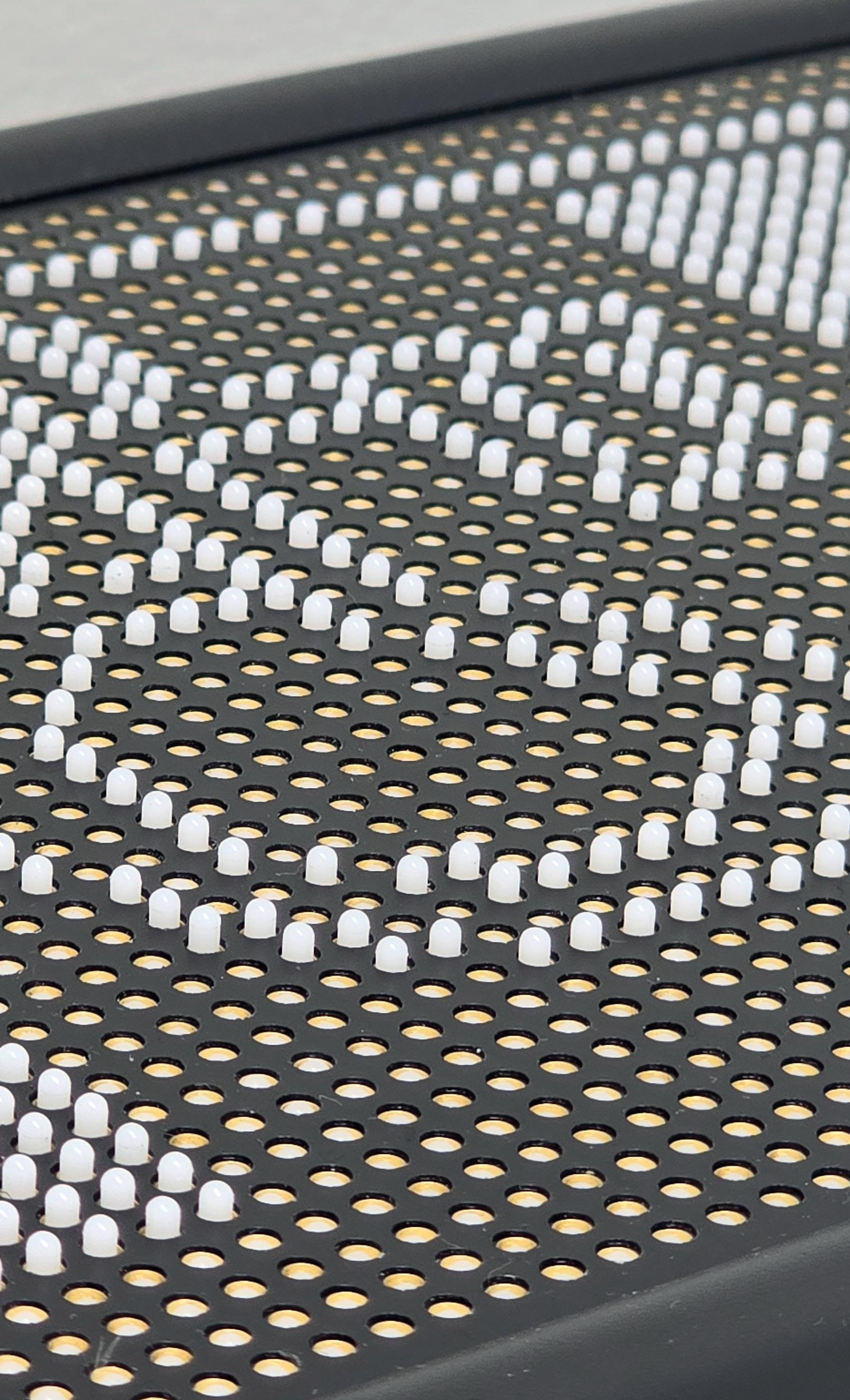
The DRU plays a vital role in creating an inclusive and accessible environment for all students and staff with disabilities, ensuring an equal opportunity for success.
To be a leading institution that fosters an inclusive, accessible, and empowering environment for students and staff with disabilities, enabling them to thrive academically, professionally, and socially.
Mission
To advocate for, support, and promote the rights of students and staff with disabilities at Wits, ensuring equal access to education, opportunities, and services, raising awareness and creating a culture of inclusivity on campus.
• Accessibility: Ensuring equal access to education, support services and co-curricular activities.
• Advocacy: Promoting disability rights and policies that reflect the community’s needs.
• Collaboration: Working with all internal stakeholders, including students, faculty, and external organisations, to enhance accessibility and rights for people with disabilities.
• Empowerment: Supporting the independence and success of students and staff with disabilities.
• Inclusivity: Creating a welcoming environment for all students and staff.
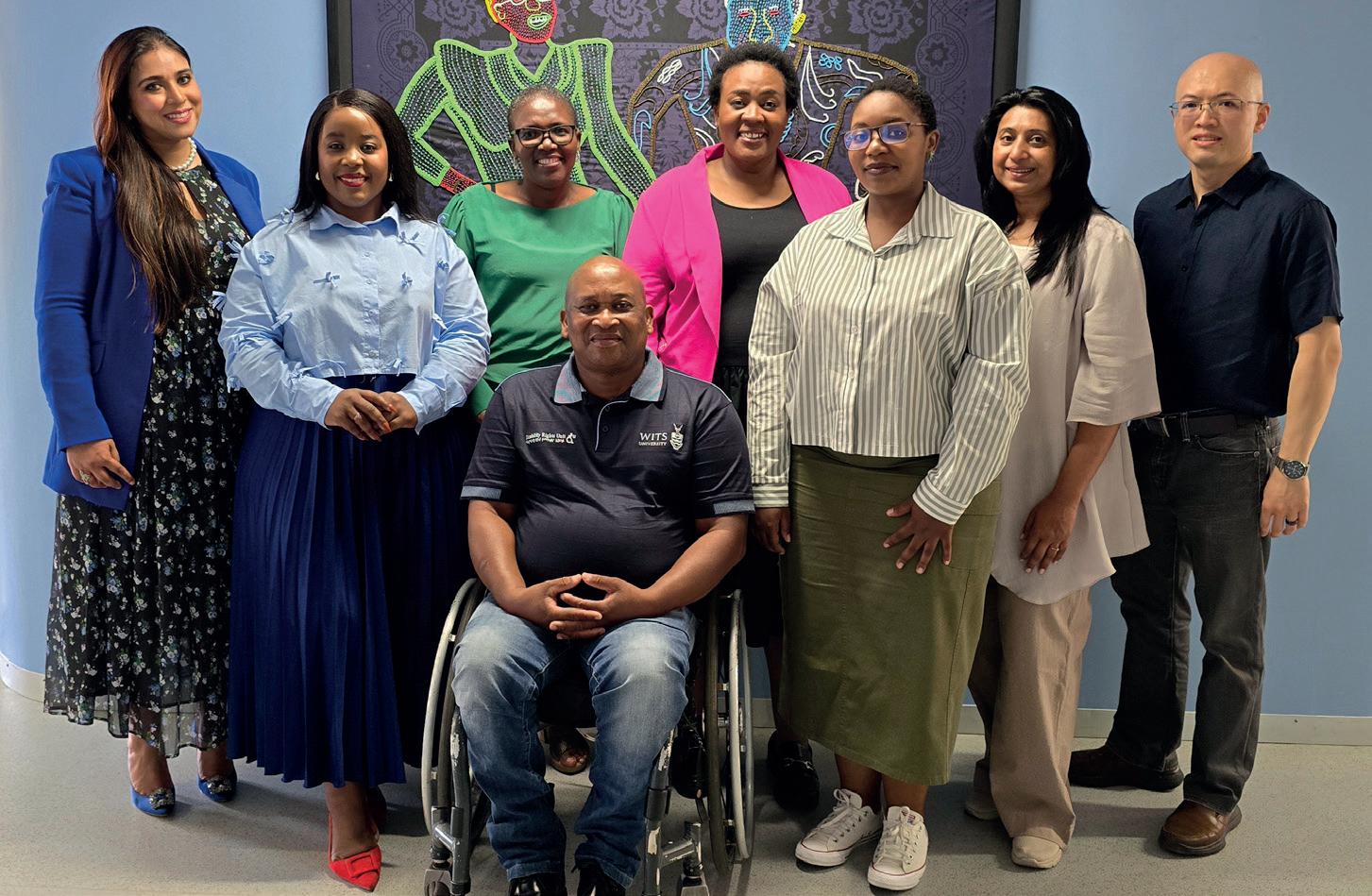

DRU Team:
Back: Dr Leila Abdool Gafoor (Head), Ms. Londi Mngoma (Receptionist - contract), Ms. Kobela Petja (Print Impaired Access Coordinator), Ms Khetha Mbatha (SA Sign Language Interpreter), Mrs Nomsa Mathebula (Accessible Study Content Provider), Mrs Subhashini Ellan (Academic & Facilities Access Coordinator), Mr Andrew Sam (Adaptive Technologist)
Front: Mr Alfred Tlou (Tests & Exams Officer)
Not in picture: Mr Duncan Yates (Neurodevelopmental and Mental Health Coordinator) & Mx Tish Geddes (Receptionist)
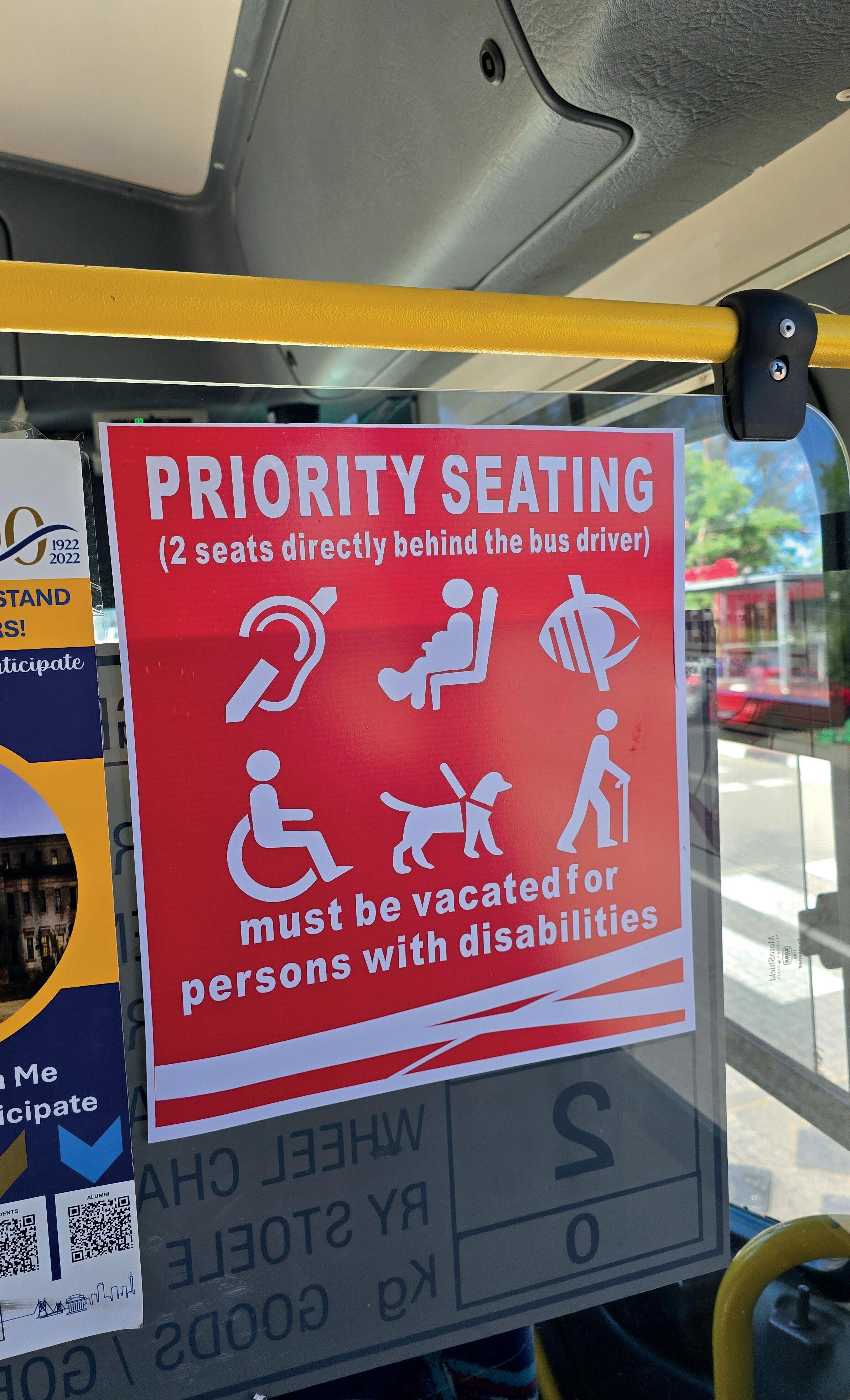
• DRU played a critical role in ensuring access to learning and campus facilities to 982 registered students with disabilities at Wits through individualised accommodations.
• Launched the new online concession application system, streamlining exam and test accommodation processes and improving efficiency.
• DRU, in collaboration with Afretec, hosted a Disability and Technology in Higher Education Workshop, engaging key stakeholders across Africa.
• Conducted accessibility audits of campus buildings and digital platforms to identify and address barriers.
• Strengthened partnerships with internal and external organisations for disability advocacy.

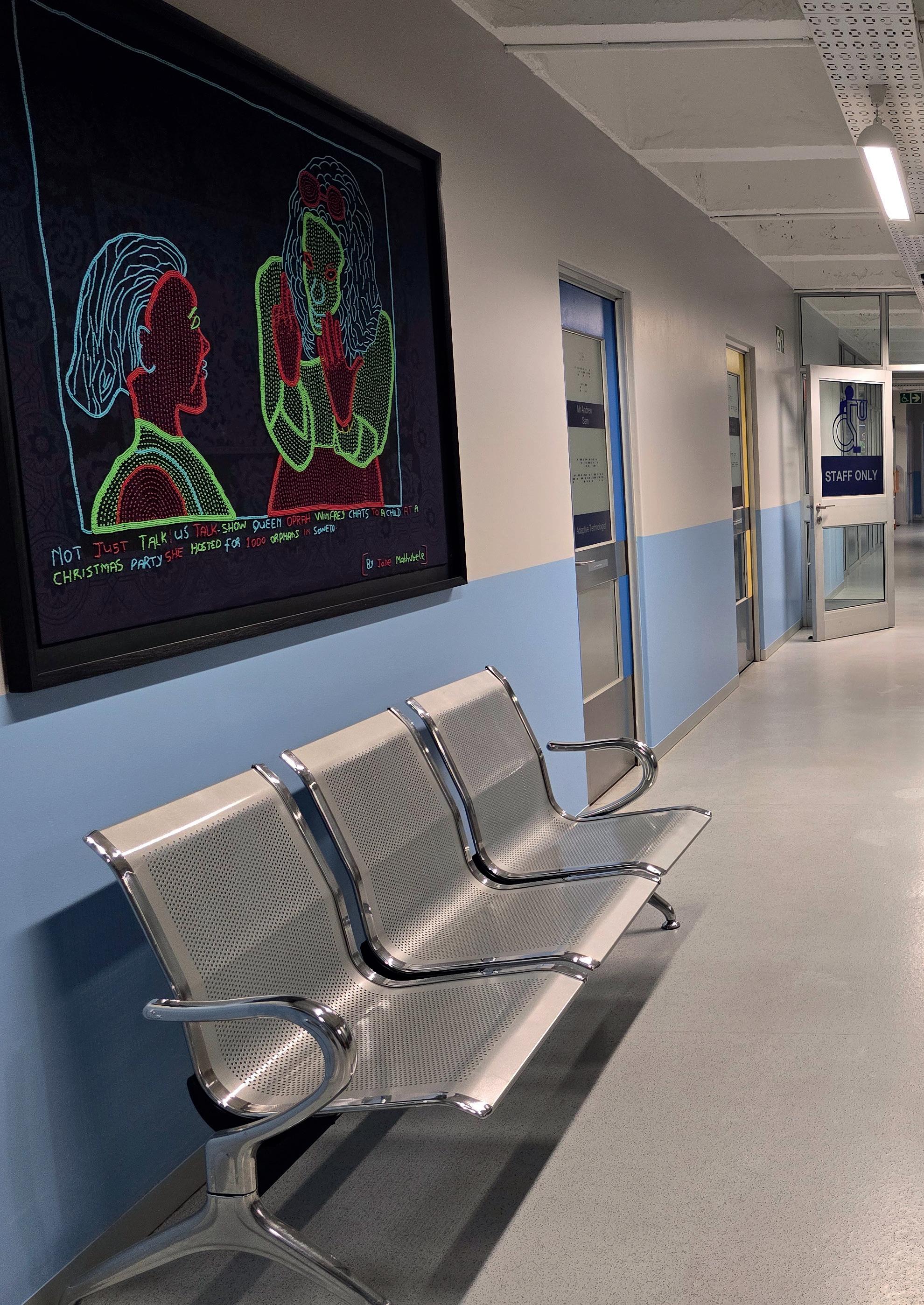

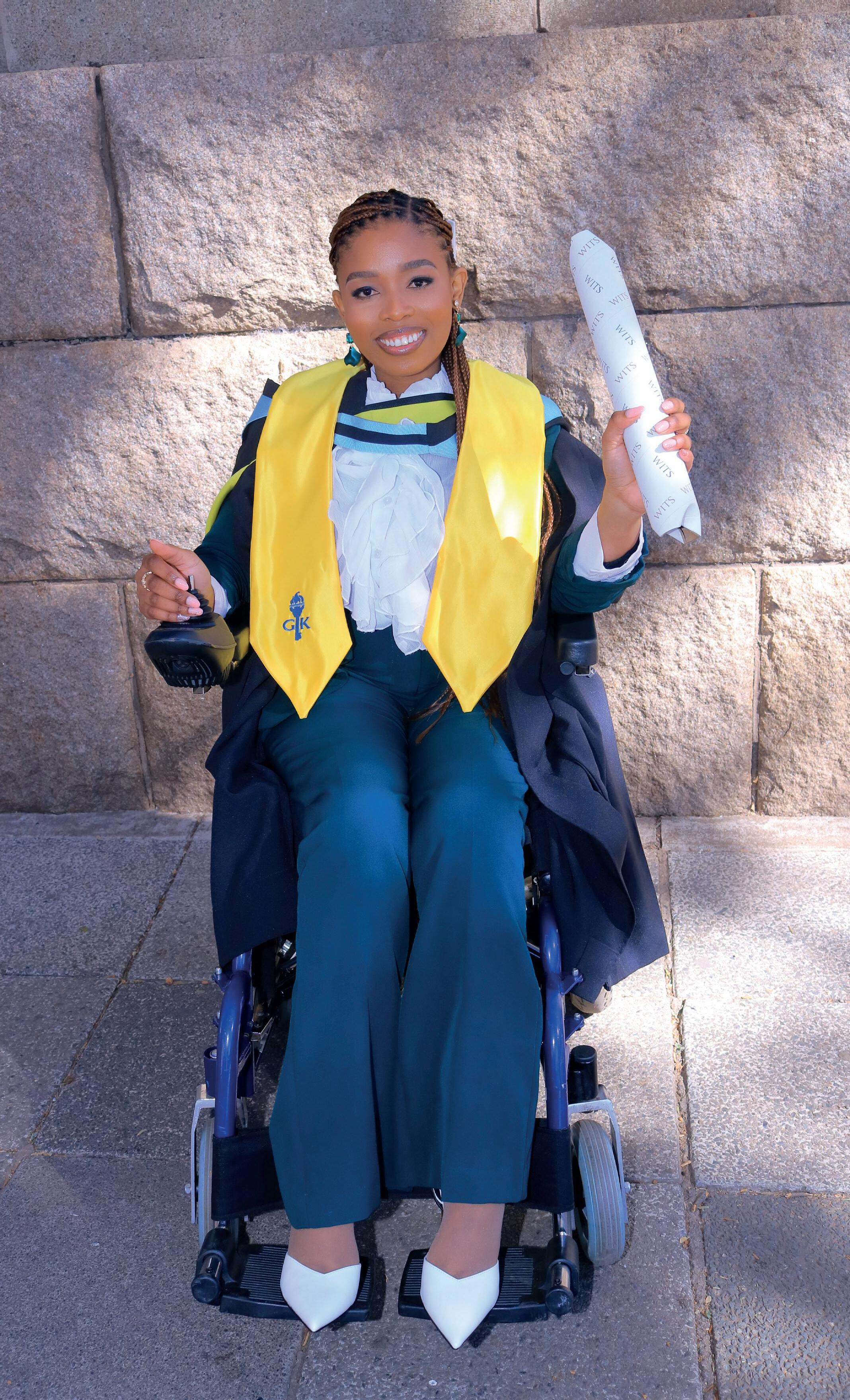
Wits, through its policy for students with disabilities, is committed to advancing disability inclusion, removing barriers, and creating an enabling environment where all students can showcase their abilities, irrespective of their disability.
The DRU provides support services to address the specific needs of students with physical, sensory, learning, and other disabilities, allowing full participation in academic, social, and extracurricular activities at Wits. Through tailored support systems, DRU strives to empower students with disabilities with the skills to succeed from their first year to their last.
Services include the provision of specialised academic accommodations, assistive technology, personalised support services, and guidance and training on navigating the campus environment.
• Academic accommodations: Academic support includes facilitating extra time and concessions for tests and exams, and converting course materials into alternative accessible formats for students with visual and print impairments.
○ 262 sessions were held, with 167 concession applications processed.
• Assistive technology: Access to technology and software that assists students with disabilities in learning and communication (e.g. screen readers, speech-to-text software). In addition, DRU supported students with loaning assistive devices (e.g., laptops, braille devices, assistive hearing devices, motorised wheelchairs, and other mobility aids).
○ 26 specialised training sessions were held with new students.
• Accessible course material: Students who are blind or visually impaired are provided with course material in an accessible format (e.g. electronic or braille/tactile). The conversion process involves editing, where converted content is carefully checked and correctly replicated.
○ 1299 academic content readings were sent to the DRU, with 13556 pages needing conversion and editing into an accessible electronic format. 117 pages of academic content were converted into a braille format.
• Mobility training: DRU provided mobility training services for students with visual and mobility impairments throughout 2024, ensuring students could navigate and find their way around campus.
○ 625 training sessions were undertaken to ensure that students had adequate support
• Sign language interpretation: Sign language interpretation refers to the process of translating spoken language into South African sign language (or vice versa) to facilitate communication between individuals who are Deaf or hard of hearing and those who use spoken language. This involves a word-for-word translation that accurately conveys the conversation’s meaning, tone, and intent.
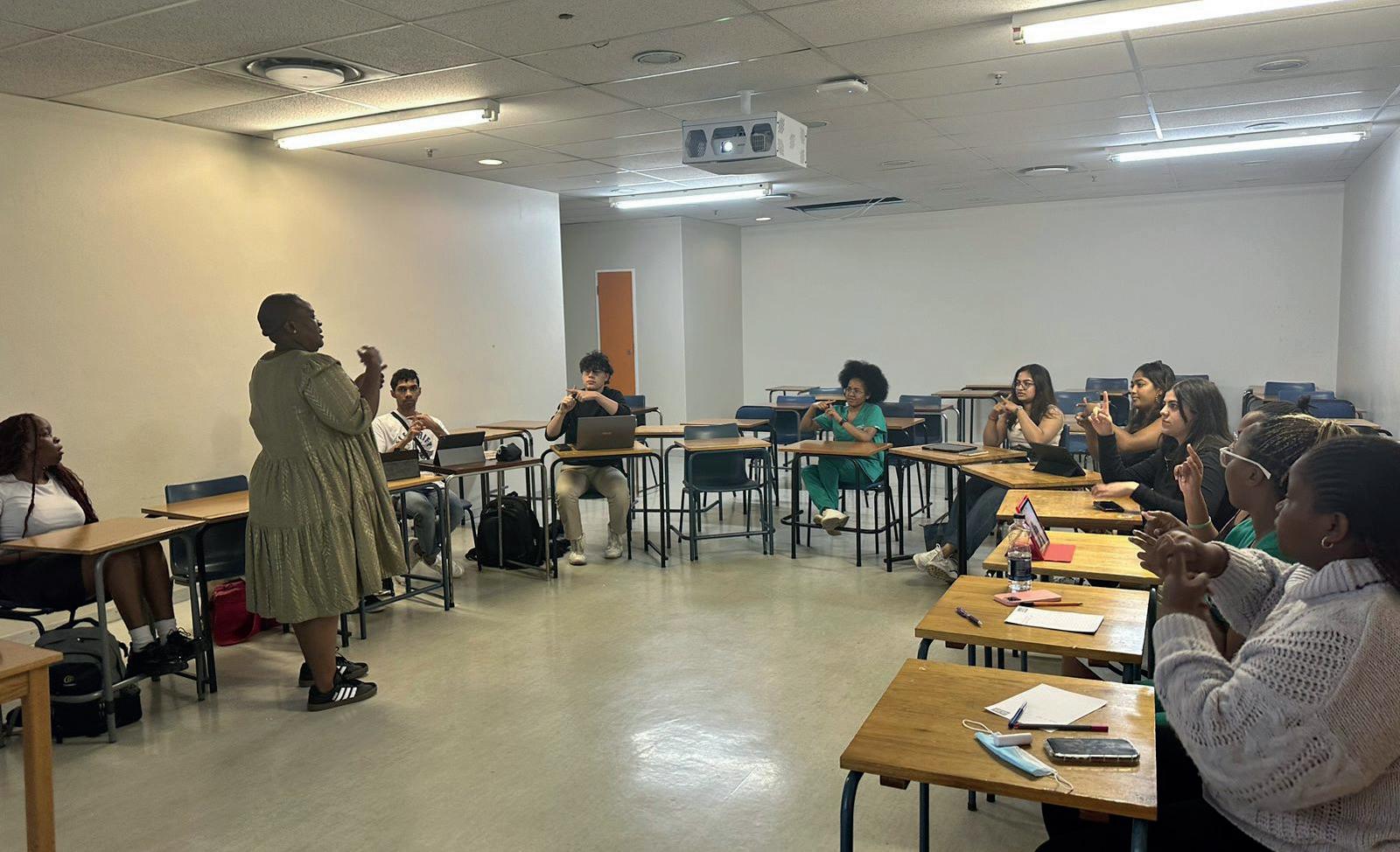
The DRU sign language interpreters (SASLI) undertook a benchmarking exercise with the University of KwaZulu-Natal’s (UKZN) SASLI support department. As a result of this exercise, DRU developed SASLI student service contracts, which are included in the DRU Standard Operating Procedures (SOPS).
○ DRU’s SASLI supported Deaf students for 1080 hours, translating lecturers’ academic spoken content in real-time.
• Tests and examinations: Test and exam support for students with disabilities involves providing accommodations and concessions that ensure equal access to the test and exam process. These accommodations can vary depending on the specific needs of the student and might include:
○ Extra time to complete exams helps students who need more time due to disabilities such as learning difficulties or physical impairments.
○ A separate venue is a distraction-free environment for students with difficulty concentrating in a busy exam hall due to conditions like ADHD or anxiety.
○ Alternative test and exam formats provide test and exam materials in accessible formats, such as large print, Braille, or digital formats, for students with visual impairments.
○ Assistive technology allows using computers with technology like screen readers and speech-to-text software for students with specific needs.
○ 286 test and exam sessions were held at the DRU, with 569 hours spent on invigilation.


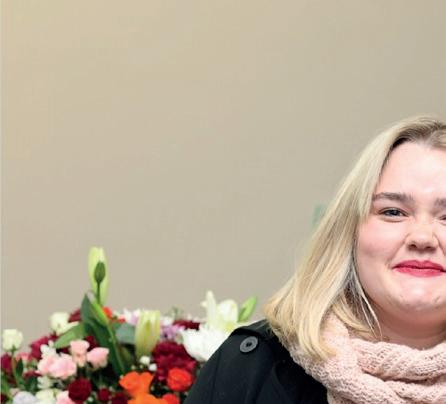
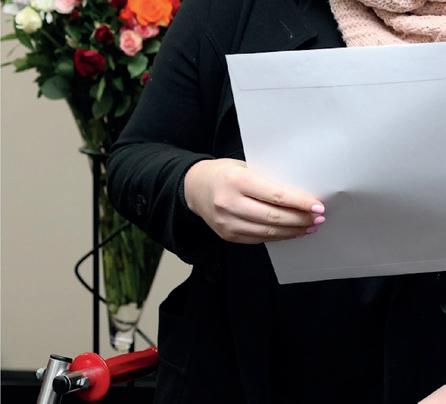


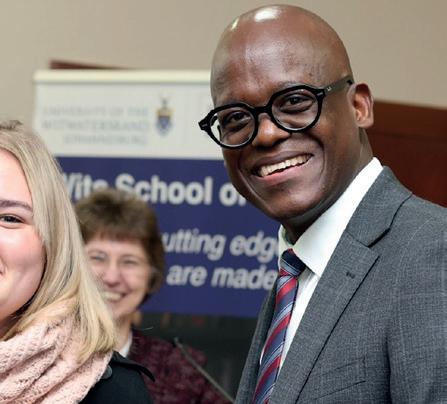

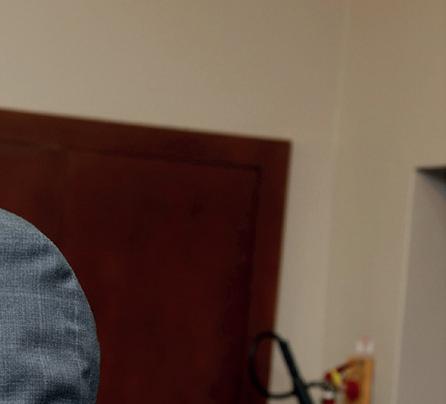


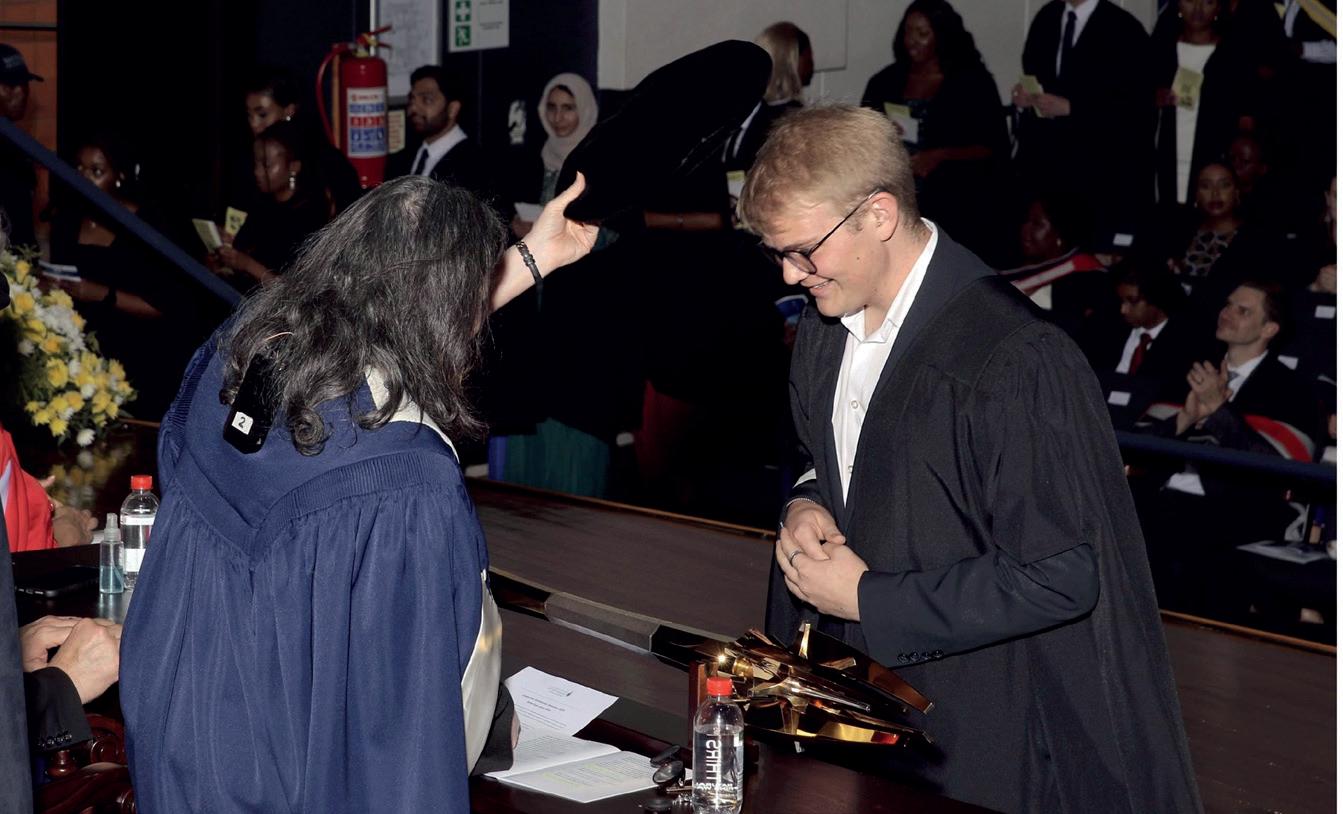

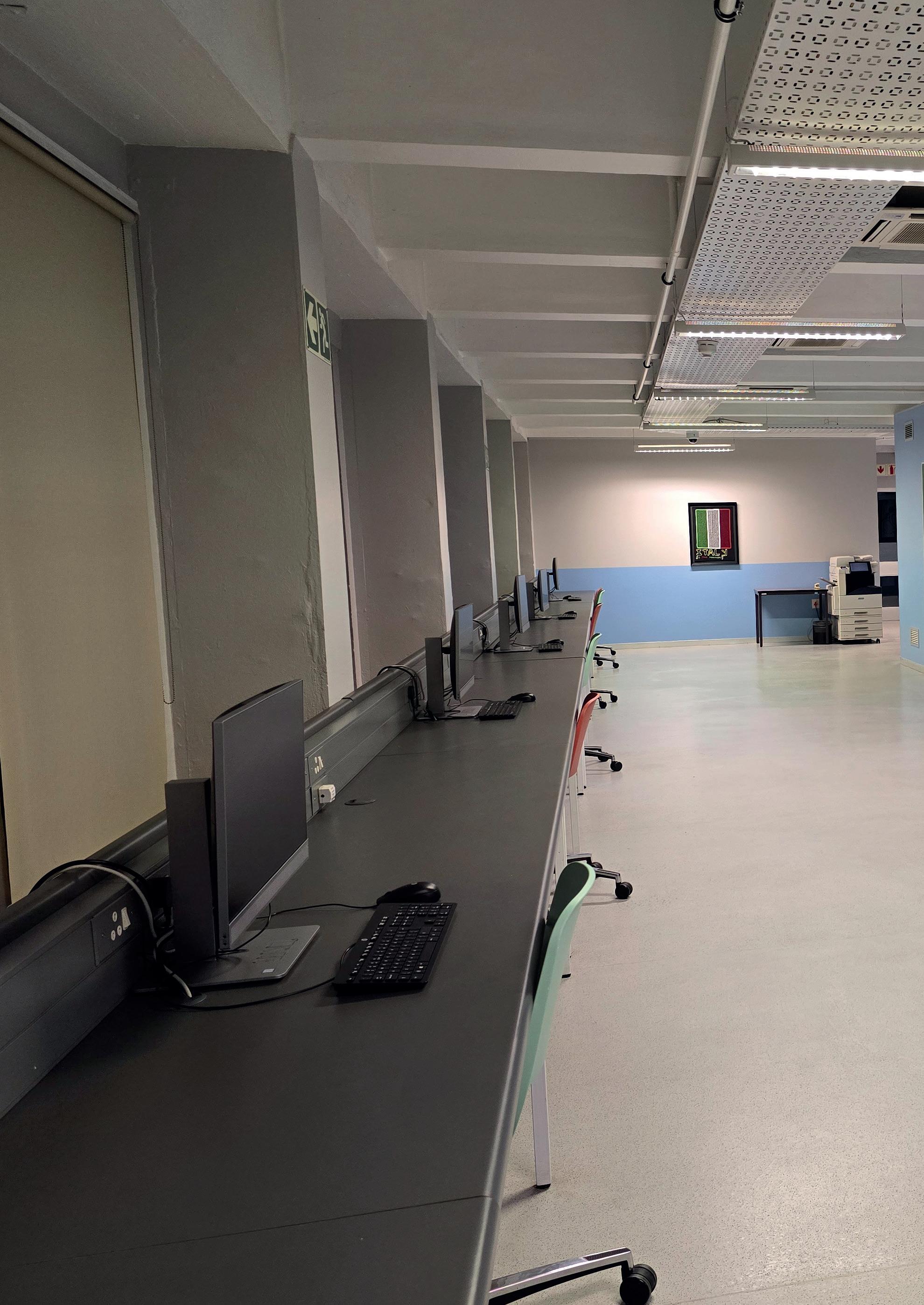
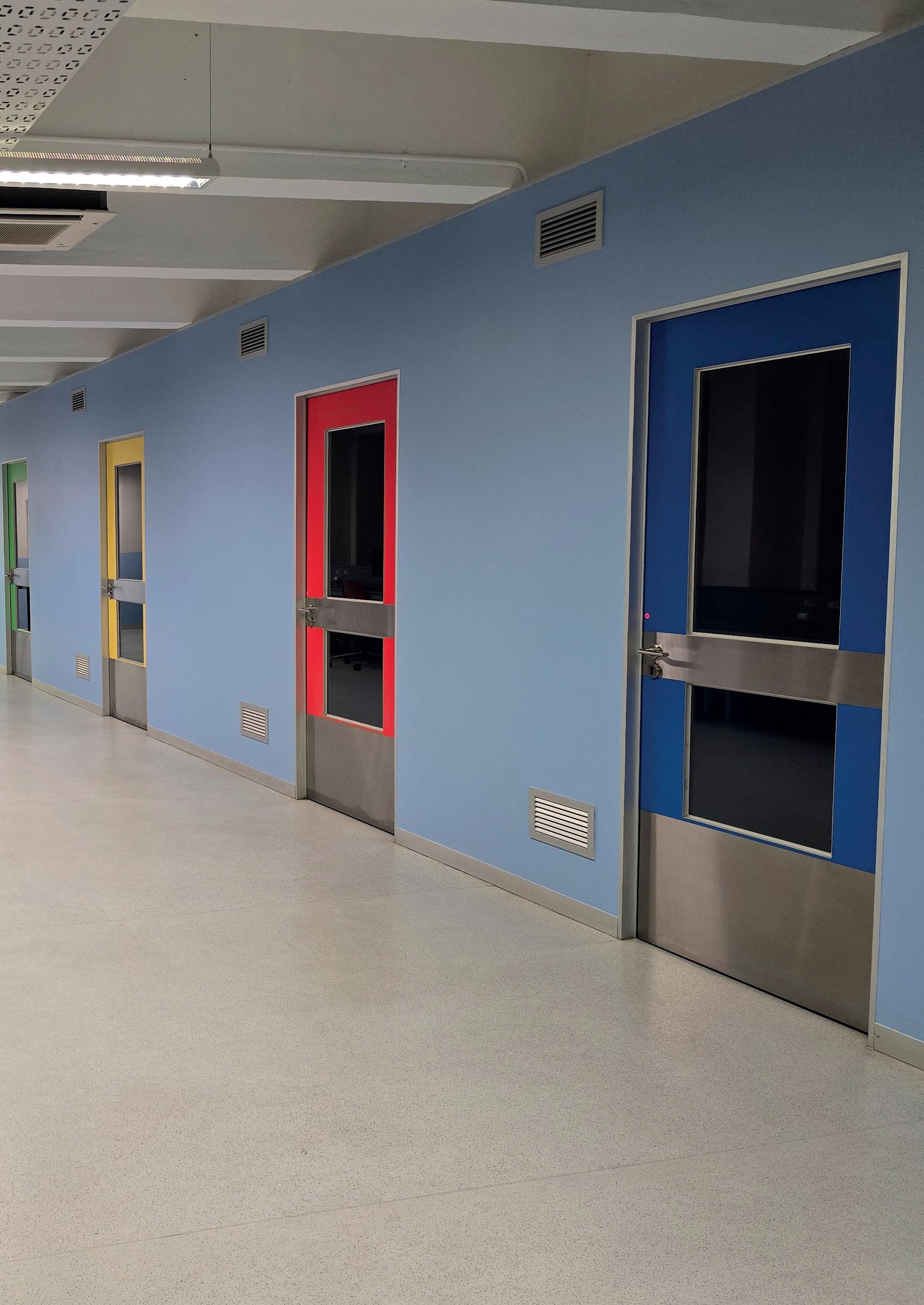
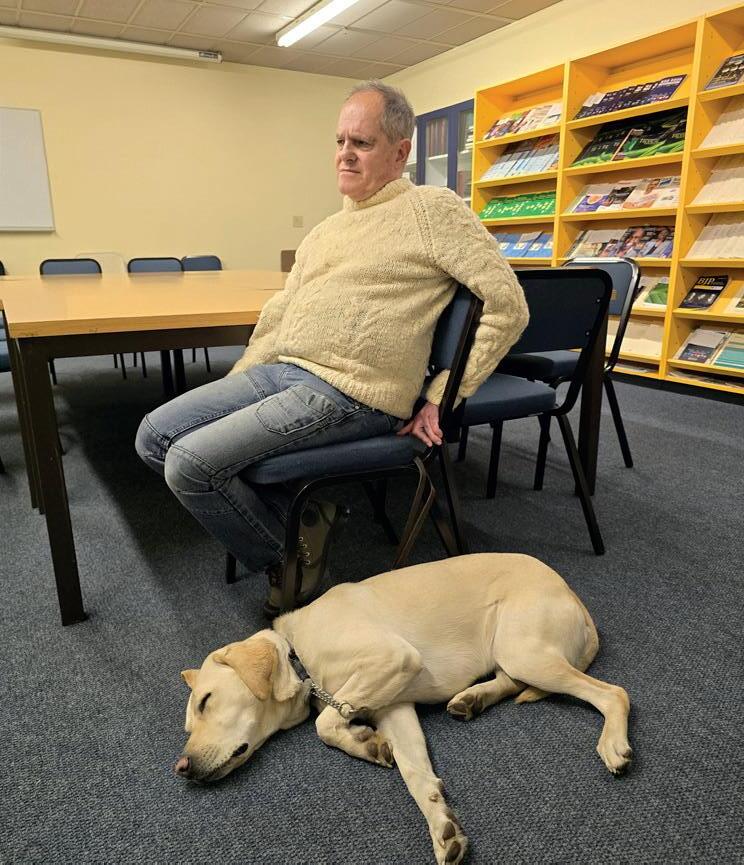

DRU strives to create an inclusive working environment where staff with disabilities have equitable opportunities for success, advancement, and contributions as any other employee. Support may require varying reasonable accommodations, resources, and adjustments that a department may need to provide for the specific disability support required by the staff member with a disability.
Some aspects of workplace support for staff with disabilities are:
• Reasonable Accommodations: Employers are required to make reasonable adjustments that allow staff with disabilities to perform to the optimum of the inherent requirements of their jobs. This may include changes to the physical workspace, ensuring that the work environment is accessible to staff with mobility impairments, like ramped entrances, or adjustments to the layout of desks or the provision of accessible office equipment.
• Assistive Technology: This may include screen readers, screen magnifiers, voice recognition software, or ergonomic input devices. These are based on reasonable recommendations to help staff with disabilities complete their work tasks.
• Training and Awareness: HR and DRU collaborate to offer line managers support to enhance their awareness of disability management in the workplace, fostering a supportive and inclusive work culture where staff feel comfortable disclosing their disability and discussing their reasonable accommodation needs.
• Ongoing Evaluation and Support: DRU offers reasonable accommodation guidance to managers about regular check-ins with staff with disabilities to ensure their specific needs are being met and to adjust accommodations accordingly.
• Return-to-Work Support: For staff who return from a prolonged illness or injury, DRU may offer guidance on the reasonable accommodations that may need to be put in place to ease their transition back to work (e.g. a phased-in approach or modification of their work responsibilities). This is done in alignment with the Wits Policy on the Workplace Inclusion of Employees with Disabilities.
• Policy Support and Development: In 2024, DRU ensured that Wits upheld disability rights by updating the Policy on the Workplace Inclusion of Employees with Disabilities to comply with national and international standards, ensuring that reasonable accommodations are considered at the forefront of support for, and retention of, Wits staff with disabilities.
○ As part of the DRU’s support to Wits employees, 475 consultations and mobilityrelated accesses were facilitated for staff with disabilities and with line managers, HR and other relevant parties in 2024.
DRU’s vision of fostering an inclusive, accessible, and empowering environment for students and staff with disabilities can only be achieved through the combined efforts, partnerships, and collaborative input from various internal and external stakeholders.
• In 2024, DRU collaborated with the Afretec Inclusion, Diversity and Impact team to host a two-day Disability and Technology in Higher Education workshop, exploring the latest advancements in assistive technologies, AI and Innovation in Higher Education, as well as strategies for creating inclusive learning environments, and best practices for supporting students with disabilities. This was the first workshop that engaged key stakeholders across Africa. Similarly, DRU collaborated with its counterparts in disability support services at the University of Limpopo.
• DRU also teamed up with the Student Representative Council (SRC) Disability representative on various disability sensitisation and awareness initiatives, with reports being made to the University Forum and the Student Services Advisory Committee (SSAC).
• DRU worked closely with internal stakeholders such as the various academic faculties and schools, Student Enrolment Centre (SEnC), Campus Health and Wellness Centre (CHWC), Examinations and Graduation Office (EGO), Financial Aid and Scholarships Office (FASO), Campus Protection Services (CPS), Campus Planning and Development (CPD) and the Operations and Facilities Management (OFM) departments, Counselling and Careers Development Unit (CCDU), Human Resources (HR) and the Transformation and Employment Equity Office (TEEO).
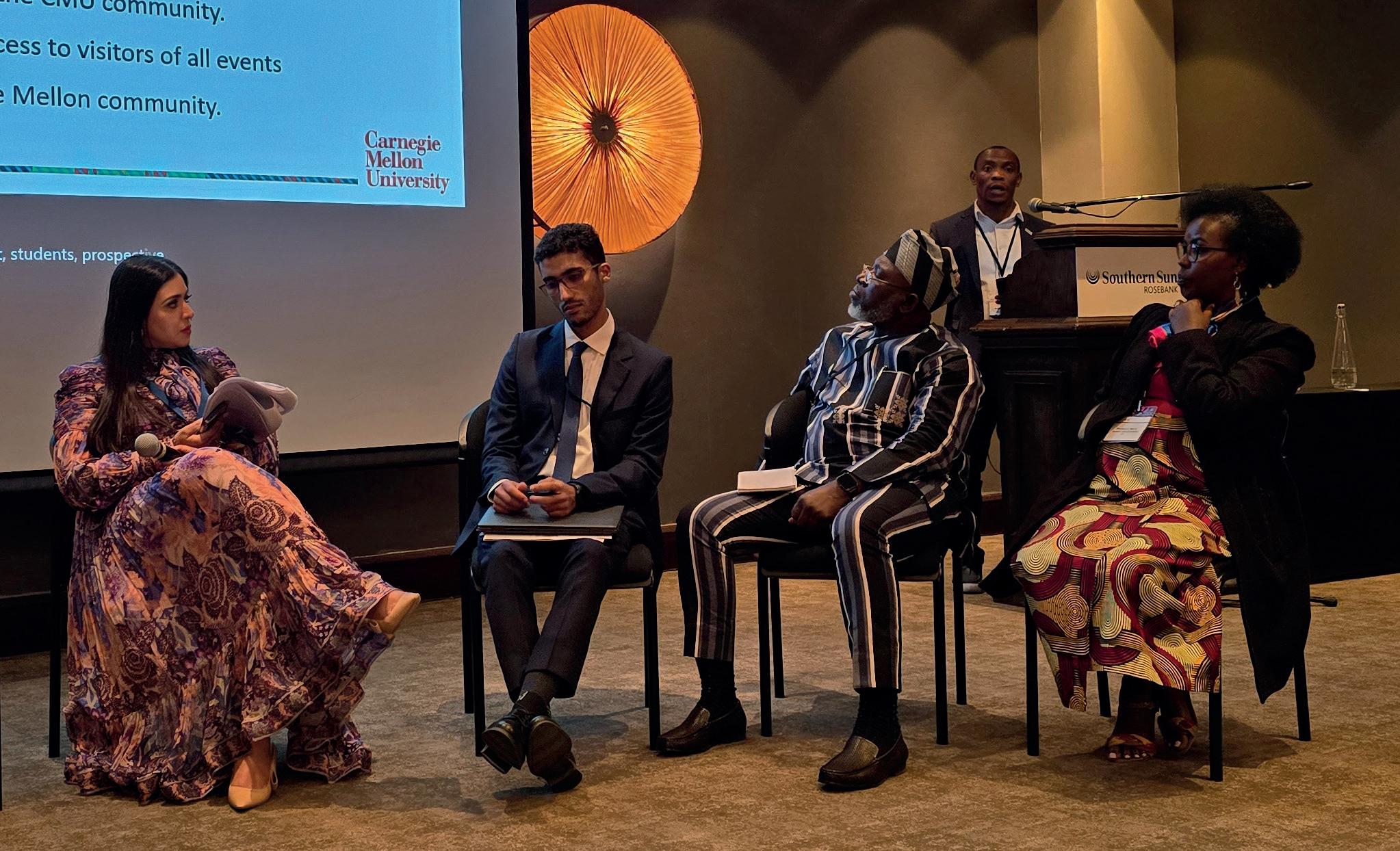


In 2024, 982 students indicated having a disability, with a diverse range of needs across all disabilities. Students with disabilities were represented across all faculties, reflecting the university’s need to foster inclusivity in diverse academic disciplines.
Disability types were grouped into the following categories:
• Visual impairments (122 students) – Ranging from low vision to complete blindness, these students benefited from assistive technologies such as screen readers, magnifiers, braille devices and accessible course material.
• Hearing impairments (33 students) – Encompasses students who are Deaf or hard of hearing, often supported through sign language interpretation, live captioning, and assistive listening devices.
• Neurodevelopmental disabilities (252 students) – This is the largest group, including students with conditions such as ADHD, autism spectrum disorders, and learning disabilities.
• Psychosocial disabilities (148 students) – this includes students experiencing mental health conditions like anxiety, depression, and bipolar disorder that impact their academic participation.
• Multiple disabilities (158 students) – Students with more than one type of disability requiring integrated support services. 61% of these students indicated having neurodevelopmental disabilities and/or psychosocial disabilities.
• Chronic illnesses and impairments (145 students) – This includes students with long-term medical conditions such as diabetes, epilepsy, and autoimmune conditions that affect their daily functioning.
• Physical disabilities (88 students) – Includes mobility impairments requiring wheelchair access, adaptive mobility equipment, and ergonomic support.
• Temporary disabilities (36 students) – Covers students with short-term conditions such as injuries, surgeries, or medical recuperation requiring temporary accommodations.
The overall percentage of students with disabilities, compared to the total Wits student population, is 2.4%, with slight variations across faculties. This shows the increasing demands on the DRU to support full-time and part-time students with disabilities. It highlights the DRU’s reliance on academic departments, the need for inclusive and accessible learning environments, and support through faculty-specific inclusive initiatives with teaching and learning methods and practices.
By engaging with the DRU to better understand our students’ diverse needs, we can ensure that every individual has the necessary support to succeed academically and in the world of work.
A breakdown of the number of students by disability type, degree type, the number of new students with disabilities, race, gender, faculty and full-time vs part-time students is shown below.
Students by Disability

Of the 158 students who indicated multiple disabilities:
• 44% indicated having a Neurodevelopmental disability.
• 18% indicated having a Chronic Illness
• 17% indicated having a Psychosocial disability.
• 8% indicated having a Physical disability.
• 6% indicated having a Hearing disability.
• 5% indicated having a Visual disability.
• 2% indicated having a Temporary disability.

As seen below, 61% of students with disabilities who received support from the DRU were undergraduates, and 39% were postgraduates.
Of the students mentioned above, 111 (11%) were new to WITS.
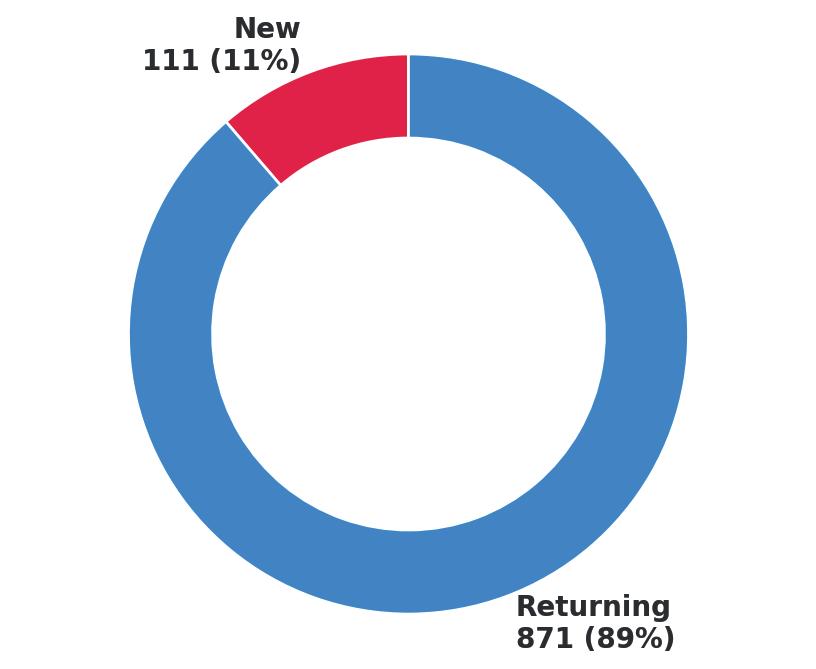
In the breakdown below, according to race, the majority of students accessing the services of the DRU are Black (489) and those least accessing DRU services are Chinese (5).

In the graph below, the majority are female students (588;63%) accessing the DRU services, followed by male (381;40%) and gender neutral (1%).
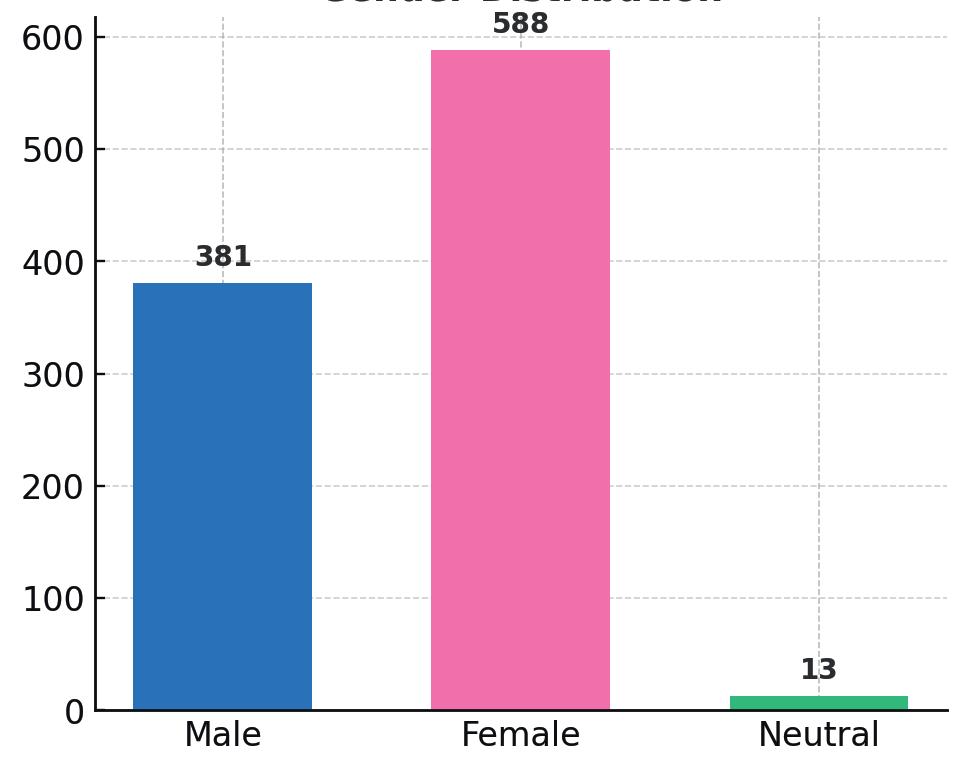
Only 8% of students with disabilities stayed in Wits’ residences in 2024.

As seen above, 2.4% of students at WITS disclosed disabilities. And below, Humanities have the largest percentage of students with disabilities in their faculty.
When looking at the student distribution by disability types per faculty below, CLM and Humanities had the highest number of students with disabilities. Most of the visually impaired students also came from these two faculties. The majority of physically and temporarily impaired students were in the CLM faculty. Most hearing, multiple disabilities, chronic, psychosocial and neurodevelopmentally impaired students were from the Humanities faculty.
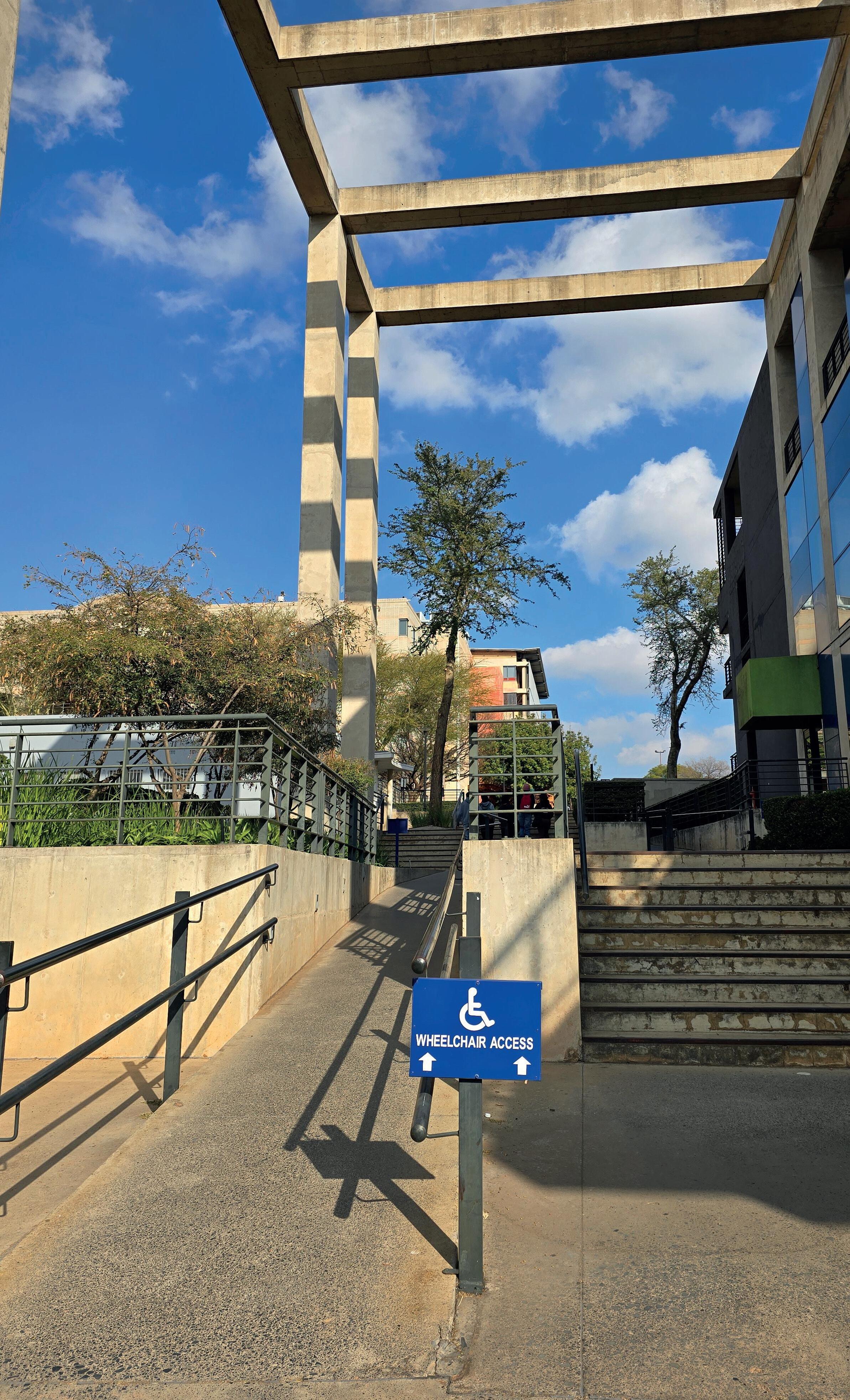
DRU’s ongoing collaborative efforts and work with the Campus Planning Department (CPD) and Operations and Facilities Management Department (OFMD) ensured the university’s campuses were accessible for all students and staff with disabilities.
• 494 consultations and access site visits were undertaken in 2024 to improve Wits’ campus accessibility. This was vital in ensuring that university buildings, facilities and spaces, such as lecture venues, residences, and ablutions, were accessible to students and staff with disabilities.





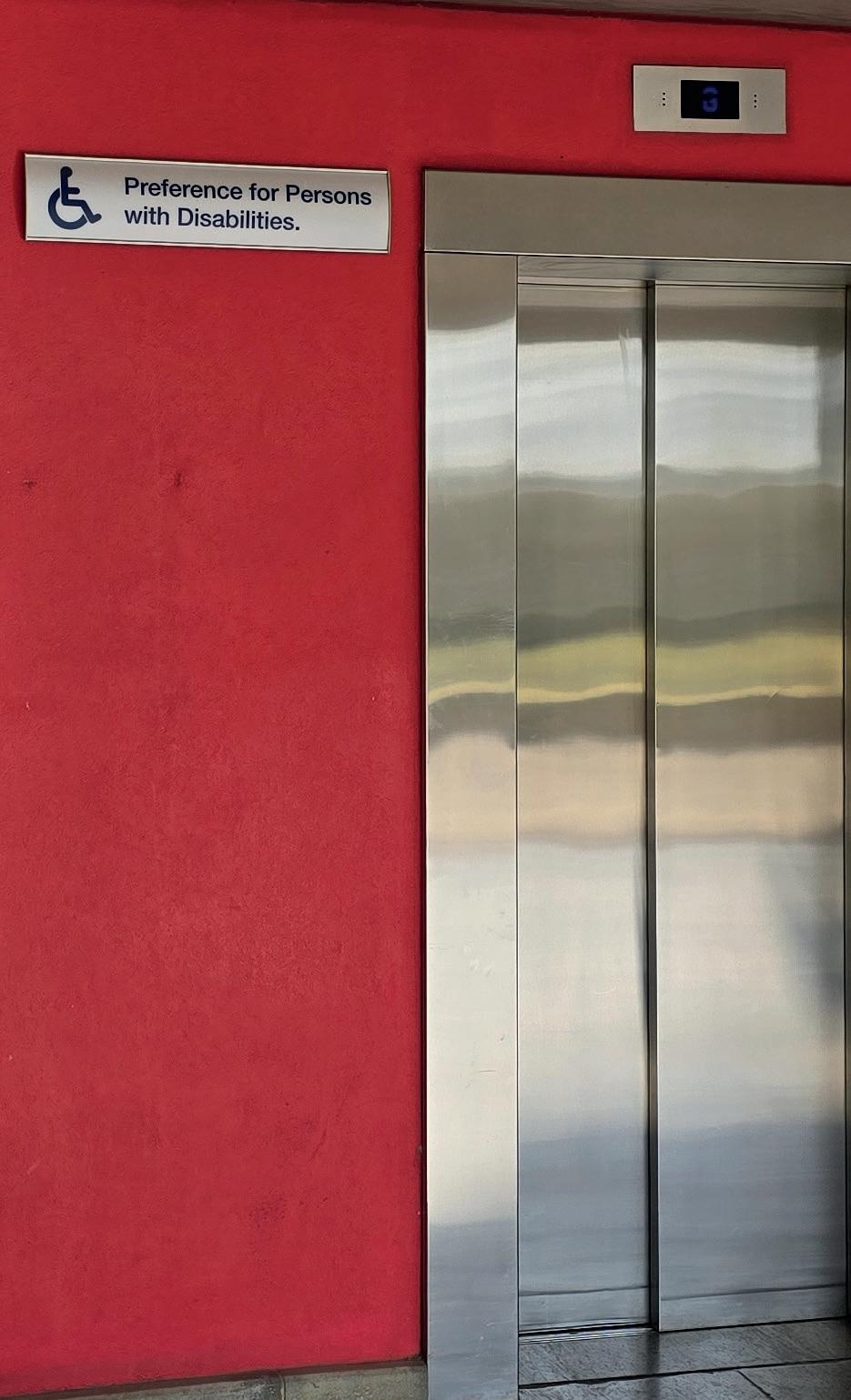
Through advocacy and awareness initiatives, DRU strives to promote an environment at Wits where students and staff with disabilities feel included and empowered.
• Disability awareness and sensitisation: DRU regularly engages in activities to promote an understanding and awareness of disability issues across the university community. DRU provided various training sessions for university staff to better serve the needs of students with disabilities.
○ DRU was involved in 394 disability information-giving interactions and workshops.
• Advocacy: DRU held various meetings with internal and external stakeholders to address any barriers that students with disabilities encountered, ensuring that the rights of students with disabilities were upheld through disability-inclusive practices.
• DRU’s Disability Interest Group (DIG): The DIG’s remit is to share disability best practices and deliberate disability issues at Wits, aligning with the DRU’s vision of fostering an inclusive, accessible, and empowering environment for students and staff with disabilities. The DIG is open to all staff and students interested in disabilityrelated matters at Wits and meets 4 times a year. The DIG aims to:
○ Provide disability sensitisation and increase awareness of correct perceptions of disability.
○ Promote accountability for inclusive disability practices in the Wits environment.
○ Invite stakeholders to engage in open conversations that enhance campus accessibility and remove barriers to inaccessible teaching and learning practices.
○ Support and strengthen DRU services through constructive collaboration.
• Social Media Activities: In 2024, the DRU actively engaged with students and the broader university community through various social media, using these platforms to disseminate information, promote services, and foster an inclusive environment for students with disabilities at Wits.
○ Facebook: The DRU maintained an active presence, sharing disability-related information and events, tailored support services for students with disabilities, and various bursary opportunities.
○ YouTube: The DRU utilised YouTube to share informational videos, serving as an accessible resource for information about available support and services for students with disabilities.
○ LinkedIn: The DRU, under the leadership of Dr. Leila Abdool Gafoor, shared insights about workshops and initiatives focused on disability and technology in higher education. A June 2024 post detailed a workshop themed “Enabling Access and Success,” emphasising the DRU’s commitment to empowering students with disabilities through technological support.
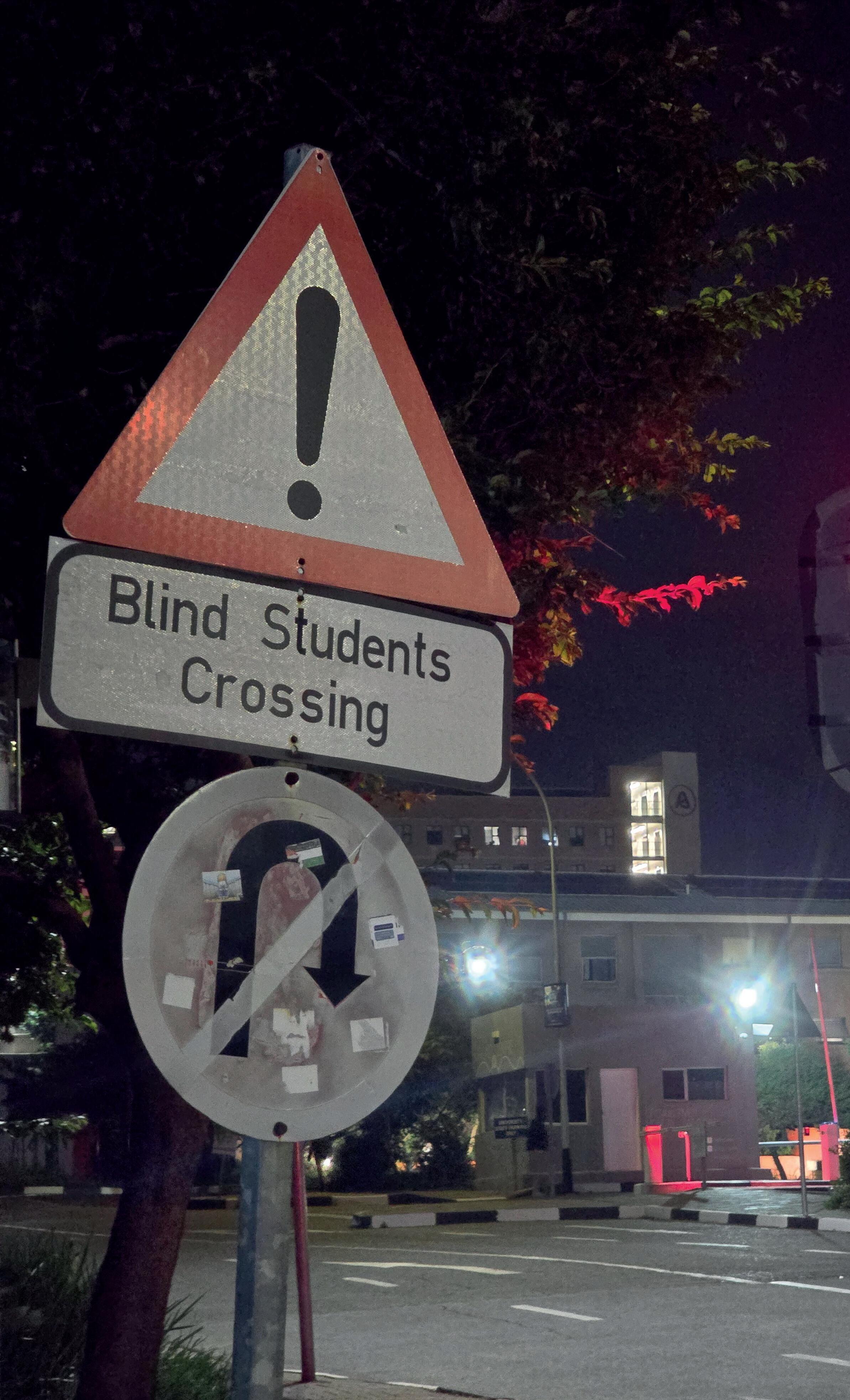
• Physical Accessibility: Older campus buildings require further modifications and renovations to meet accessibility standards.
• Digital Accessibility: Although great strides have been made regarding the accessibility of Wits’ online platforms and learning materials, continued efforts are needed to ensure full compliance with accessibility guidelines.
• Resource Limitations: The increasing demand for disability support services highlights the need for additional resources and funding.
• Awareness and Sensitisation: Continued efforts are needed to educate the Wits community about disability rights and inclusion.


• Renovation of the DRU’s satellite office to improve accessibility and services for students at the Wits Parktown campuses.
• Enhancing assistive technology services by utilising the latest innovations and technologies to support the specific needs of students and staff with disabilities.
• Strengthen staff capacity through upskilling and training, and enhance DRU services by adding relevant professionals, e.g. an occupational therapist.
• Developing partnerships with industry and external donors to secure additional funding and enhance service delivery.
• Expanding community engagement through increased collaboration with university stakeholders, disability organisations, alumni networks, and student groups.



We extend our gratitude to the university leadership, faculties, schools, departments, staff, students, and external partners who have contributed to our progress this year.
Special thanks to our dedicated team at the Disability Rights Unit for their unwavering commitment to accessibility and inclusion. Together, we continue to advance disability inclusion and accessibility in higher education.
